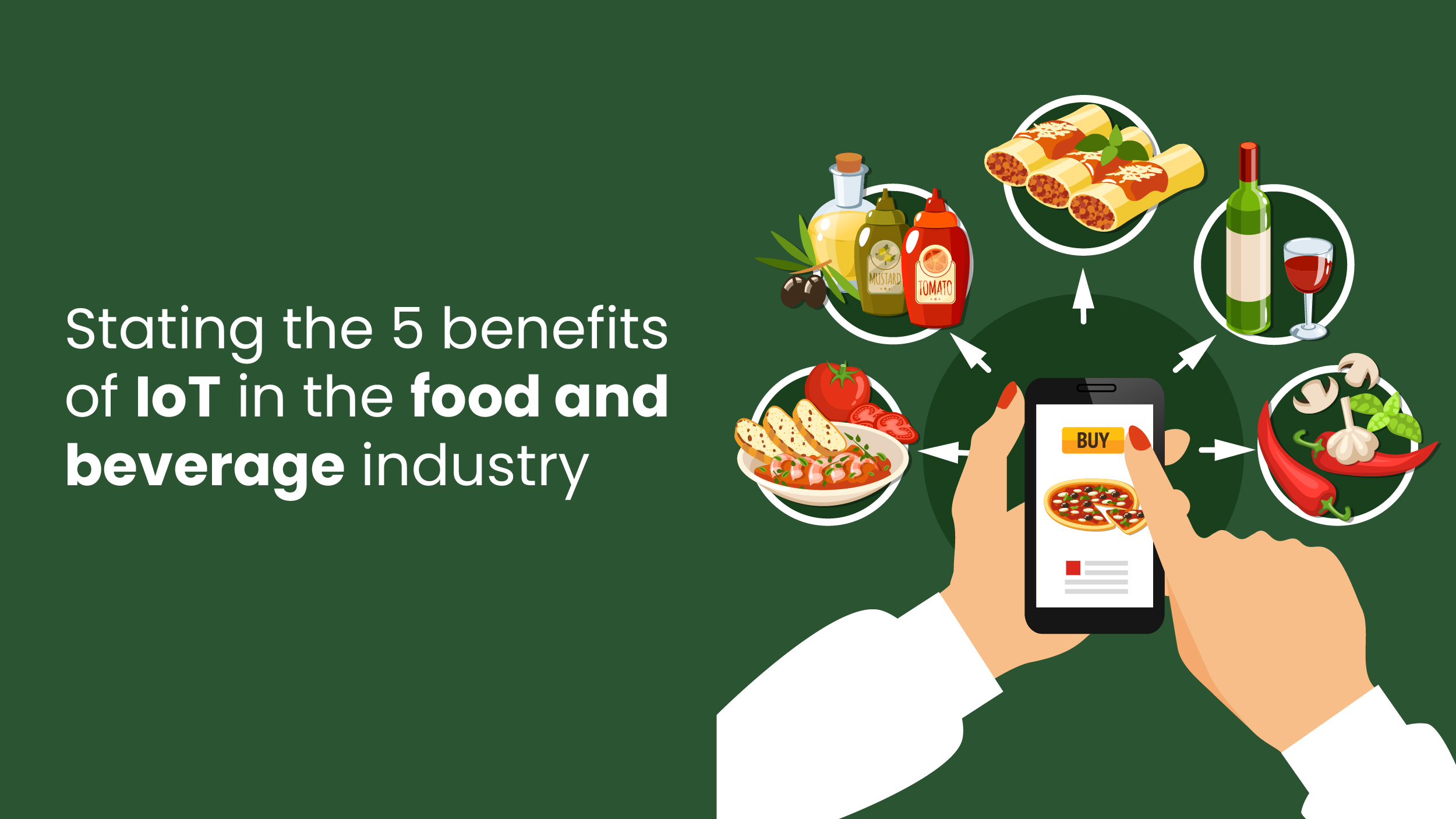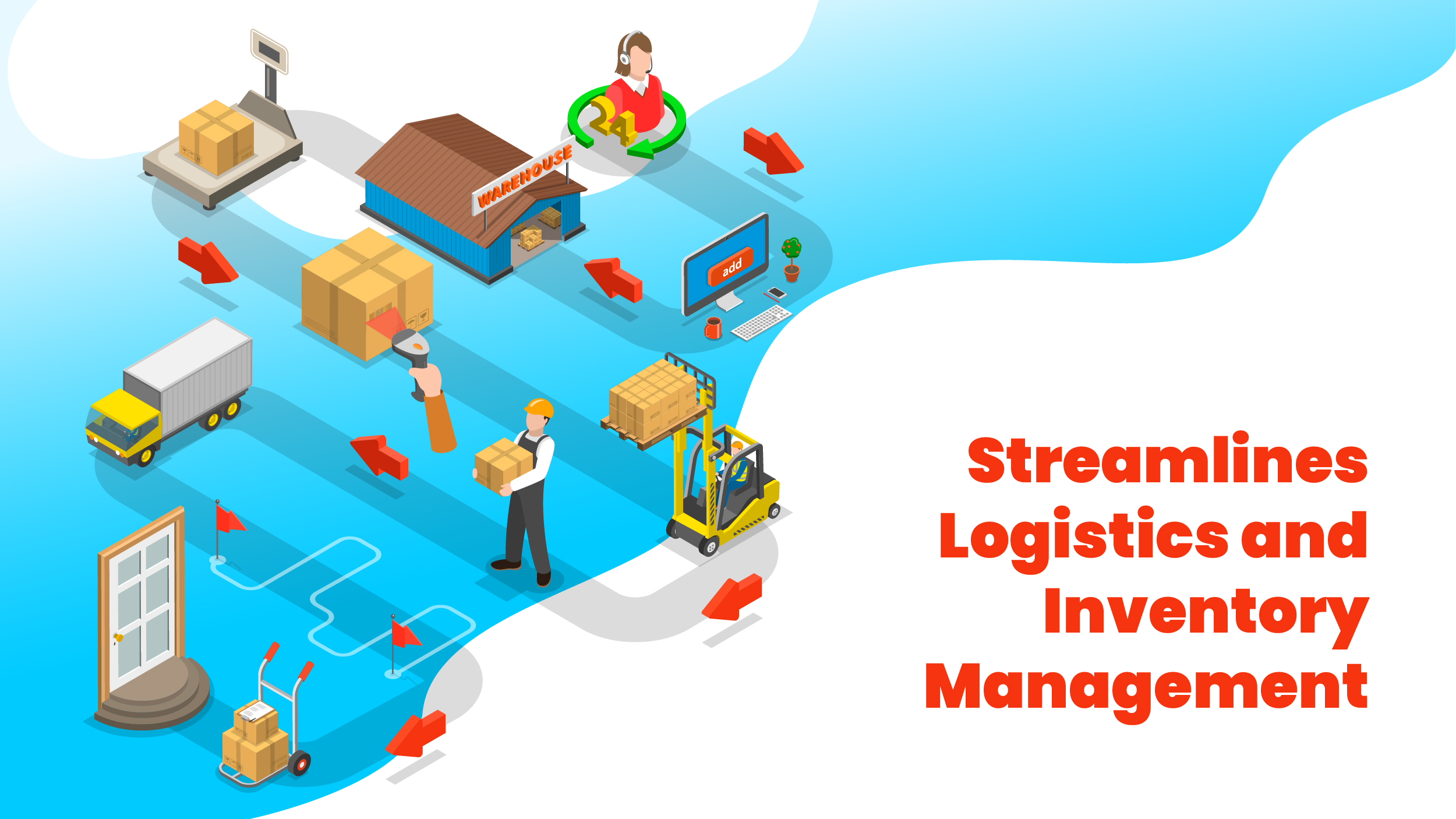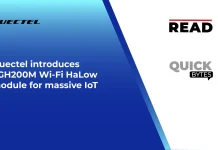In the last few years, the adoption of IoT in the food and beverage industry (F&B industry) has significantly increased. As all industries are undergoing a complete digital transformation the adoption and implementation of IoT solutions in the food and beverage industry have opened doors for greater opportunities. The main objective of the food and beverage industry is to deliver high-quality food to the end consumer.
However, this is largely dependent on how the food and beverages are stored and processed. This is where IoT in the food and beverage industry lends a helpful hand. IoT solutions greatly help companies to achieve higher levels of food safety and reduce the costs of food processing and packaging. Further, it also helps in improving traceability, reducing food shortage, cutting down wastage, etc.
Why is IoT important in the food industry?
In the food industry, there are numerous procedures related to the processing of food that is handled to be marketed. After the completion of agricultural production, distribution, preservation, processing, and storage are other processes that are taken care of by the food industry. Additionally, it is crucial to even understand that the food produced belongs to which industry type, be it primary, secondary, or tertiary. These types will be covered in another blog, but to handle this process in a smart manner, IoT plays a major role.
On the other hand, food safety is receiving more concern in the F&B sector. In this situation, IoT-enabled food and beverage solutions assist businesses in maintaining flexibility while delivering the best top-of-the-line products and adhering to Food Safety Modernization Act (FSMA) regulations:
- To ensure that food products are stored in an appropriate environment, several types of monitoring sensors, including temperature and humidity sensors, are used to keep track of the requisite production state, shipping time, and container temperature.
- Organizations may precisely monitor food safety data points with the help of real-time temperature tracking sensors, ensuring effective cold chain management.
- When data obtained from sensors indicate potential problems or violations, this prompts employees to complete and verify required food safety inspections.
- Food packaging is currently fitted with sensors and connected to an extensive supply chain network by the packaging industry. It facilitates the trace-and-track procedure for investigators and significantly cuts down on the required time and effort.
- The nutritional data of a product can also be provided by integrated IoT-based sensors, which can also assist the user in comparing several goods to find the one that matches their nutritional needs.
- IoTs are also demonstrating their worth in the fight against food fraud in the organic food sector. Businesses may distinguish legitimate products from duplicates by giving each item a digital identifying mark.
Stating the 5 benefits of IoT in the food and beverage industry
The Internet of Things (IoT) technology has several advantages for the food and beverage sector, and its influence over the past few years has been very significant. The benefits of IoT in the food and beverage industry are explained in detail below.
Provides Increased Food Safety
Implementing IoT solutions in the F&B industry has massively reduced the chances of developing food-related illnesses in humans. This is possible through food monitoring sensors that monitor the production state of food as well as when it is shipped after production. This has hugely helped in reducing instances of food wastage and prevents rotten food to reach the end consumers, thus enhancing food safety levels.

Enhances Multiple Processes
Apart from food safety, there are many other things that can make multiple processes easier by implementing IoT solutions. There are different types of IoT sensors that can be integrated with factory systems that inspect multiple processes such as manufacturing, production, and storage. This majorly helps in keeping tabs on exact output, quality control, product tracking, tracking employee activity, etc.
Improved Traceability and Transparency
The implementation of a traceable and transparent supply chain of goods and services is now a necessity. This has further increased the use of IoT sensors that help consumers and companies to track products. for increasing customer loyalty and establishing trust between the business and the consumers.
IoT technology enables consumers to scan the QR code on the product to easily track its entire food supply chain. This in turn helps consumers trust companies and makes the entire process more effective.
Streamlines Logistics and Inventory Management
One another great advantage of IoT in the food and beverage industry is that it can be used in the logistics department for smooth operations. These IoT solutions for logistics are also helpful in inventory management. These IoT technologies are supported by just-in-time logistics to ensure that all supplies are aligned with demand. These systems hugely help in avoiding shortages and overstocking as well.

Reduces Food Wastage
Wastage in the food and beverage industry is not only a given but also a challenge for enterprises working in this industry. However, managing food waste with advanced IoT technology has provided effective ways to save these products. IoT technology can monitor all the stages of food production as well as the state of the food products.
IoT sensors allow enterprises to track food and beverage temperatures in real-time. When food storage or shipping containers go above or below the prescribed temperature these IoT sensors send alert signals so corrective measures can be taken on time to reduce food wastage.
Today, with the advancements in the Internet of Things technology the F&B industry is experiencing major transformations. These transformations are largely exclusive to food safety. Thus, leveraging IoT technology in the food and beverage manufacturing industries assures the availability of the highest food quality standards anytime and anywhere.
Conclusion
The food industry is going through some significant changes as a result of the availability and expansion of Internet of Things (IoT) solutions and services, particularly in terms of developments regarding food safety. Utilizing IoT technology, food production companies can maintain the highest levels of quality while ensuring that their products will always be of the same, higher quality, wherever they are.






